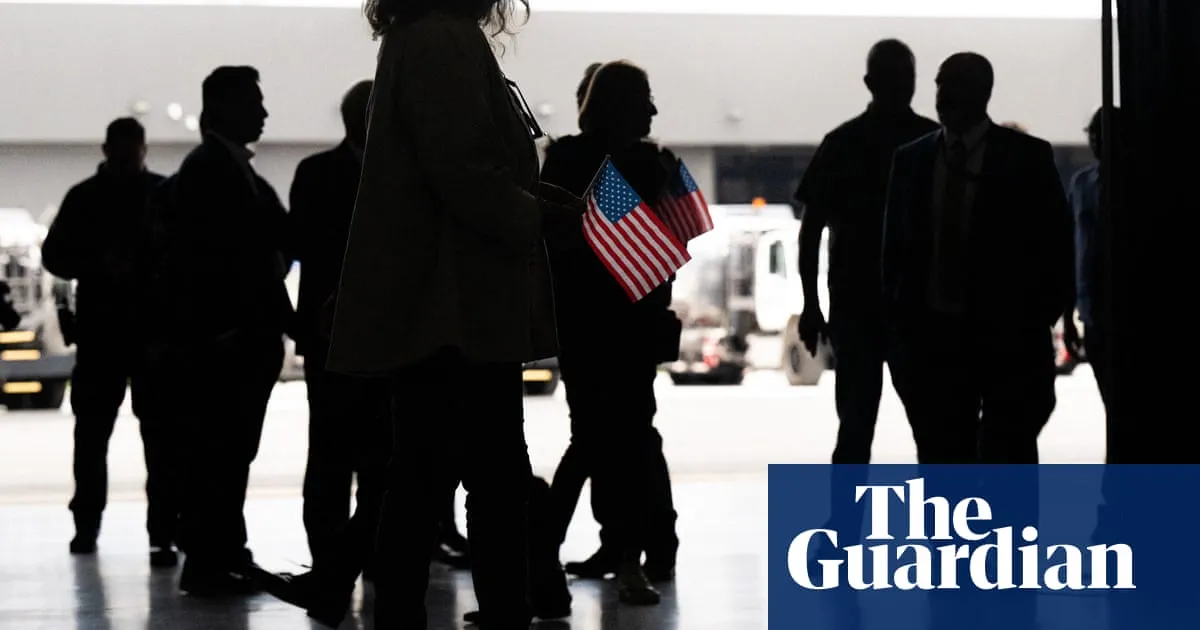
In a surprising turn of events, one of the white Afrikaners recently brought into the United States as refugees by the Trump administration has been revealed to have a troubling history of antisemitic social media posts. This revelation comes at a time when the White House has cited alleged antisemitism as a rationale for the deportation of pro-Palestinian protesters, raising significant questions about the administration's policies and priorities.
Charl Kleinhaus, who arrived in the US this week, has previously posted on X in 2023 that “Jews are untrustworthy and a dangerous group.” In another controversial post from the previous fall, he shared a right-wing nationalist YouTube video titled “‘We’ll shoot ILLEGAL Immigrants!’ – Poland’s Illegal Islamic immigrant solution,” accompanied by clapping emojis. Kleinhaus has also been known to promote conspiracy theories suggesting that white individuals in South Africa are facing severe persecution.
Kleinhaus confirmed to multiple media outlets, including the Bulwark and the New York Times, that he is the owner of the social media account containing these antisemitic and racist posts. Despite this, he insisted to the Times that he does not hold antisemitic views and attributed his controversial posts to a moment of error while on medication.
The Trump administration has been accused of launching a systematic campaign against pro-Palestinian activists in recent months, claiming that these individuals are engaging in antisemitism. In a significant move, the Department of Homeland Security (DHS) announced last month that it would begin screening immigrants' social media activity for antisemitism, using this as a basis for denying requests for immigration benefits.
Despite his troubling background, Kleinhaus was granted refugee status by the US government, along with 58 other white South Africans, and arrived this week at Washington Dulles International Airport. According to Kleinhaus, they “just packed our bags and left” for “safety reasons.” His LinkedIn profile notes that he owns a mining company in South Africa, which adds another layer of complexity to his story.
Afrikaners represent a white ethnic minority that ruled South Africa during the apartheid era, which enforced severe policies of racial segregation until its official abolition in 1994. Some extremist Afrikaners, alongside notable figures like Donald Trump and his major financial supporter, Elon Musk—who was born and raised in South Africa—have propagated the false narrative of a “white genocide” occurring in the country.
In February, Trump signed an executive order asserting that Afrikaners were facing unjust persecution with minimal intervention from the South African government. This order facilitated the granting of refugee status to a group of Afrikaners, including Kleinhaus.
A senior official from the DHS stated, “The Department of Homeland Security vets all refugee applicants. Any claims of misconduct are thoroughly investigated, and appropriate action will be taken as necessary.” However, the DHS has refrained from commenting on individual application statuses, leaving many questions unanswered.
This week, the Episcopal Church announced it would be terminating its refugee resettlement program with the US government, citing concerns over the Trump administration's approach to the resettlement of white Afrikaners. This decision has sparked further debate about the implications of such policies and the ethics of refugee resettlement practices in the United States.